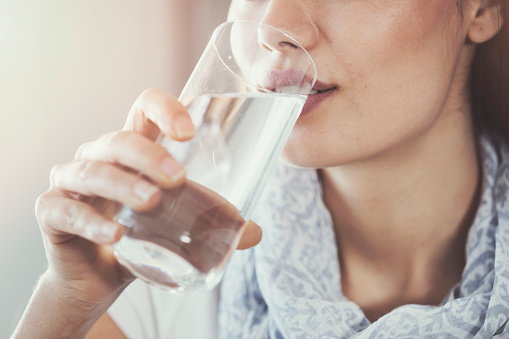Dental Blog - Las Vegas & Henderson, NV
Dental Blog

Damage Dehydration Can Cause Following Oral Surgery

Undergoing oral surgery is a significant step in addressing dental issues, but the recovery process is equally crucial. One often overlooked aspect of recovery is maintaining proper hydration. Failing to stay hydrated after oral surgery can create an unexpected setback in recovery. At Nevada Oral and Facial Surgery, our team of experts understands the importance of hydration in the recovery process and is here to guide you on how to quench your recovery thirst with proper hydration after oral surgery.
Why Hydration Matters Post-Surgery
Hydration is vital for overall health, and it plays an even more critical role when recovering from oral surgery. Water is essential for maintaining bodily functions, especially when your body is healing. Staying hydrated helps regulate body temperature, transport nutrients, and remove waste. After oral surgery, these processes become even more crucial as your body works overtime to repair itself.
Inadequate fluid intake can slow the healing process, making you more susceptible to complications. Drinking water after oral surgery ensures that tissues remain supple and healthy, promoting faster recovery. Additionally, it helps keep your mouth moist, which can reduce discomfort and prevent further oral complications.
Understanding Dehydration’s Impact
Dehydration after oral surgery can have serious repercussions. It can exacerbate pain, increase the risk of infection, and prolong recovery time. A dry mouth can lead to bacterial growth, causing potential infections or complications. Being mindful about staying hydrated is a proactive step towards avoiding these pitfalls.
Symptoms of dehydration include dry mouth, dizziness, fatigue, dark urine, and headaches. Recognizing these signs early can prevent more severe issues down the line. If you notice any of these symptoms, it’s crucial to address them immediately by adjusting your fluid intake.
Common Causes of Dehydration Post-Surgery
Several factors contribute to dehydration after oral surgery. Pain or discomfort may deter you from drinking enough fluids, especially if swallowing is difficult. Additionally, some medications prescribed post-surgery might have dehydrating side effects, increasing your body’s fluid needs.
Anesthesia used during surgery can also cause temporary dehydration. It’s important to remember that your body requires more fluids post-surgery to compensate for any fluid loss during the procedure. Keeping this in mind can help you consciously prioritize your hydration.
How Much Water Should You Drink?
A common question patients ask is, “Can I drink water after oral surgery?” The answer is a resounding yes! Drinking water is not only safe but encouraged. It’s important to follow your surgeon’s instructions regarding fluid intake, as every individual’s needs vary based on their specific surgery and health condition.
A general guideline is to aim for at least eight 8-ounce glasses of water daily. However, this can vary depending on your age, weight, and activity level. Listening to your body’s signals and adjusting your fluid intake accordingly is key to ensuring optimal hydration.
Tips for Staying Hydrated
Staying hydrated doesn’t have to be complicated. Here are some practical tips to ensure you meet your fluid needs:
- Set Reminders: Use phone alarms or apps to remind you to drink water at regular intervals.
- Keep Water Accessible: Always have a water bottle nearby, whether you’re at home, work, or on the go.
- Incorporate Other Fluids: While water is best, other hydrating beverages like herbal teas and clear broths can also help.
By actively incorporating these methods into your routine, you can ensure you stay adequately hydrated during recovery.
Encouraging Recovery Through Nutrition
Beyond hydration, nutrition plays a vital role in the healing process. Consuming nutrient-dense foods rich in vitamins and minerals can bolster your body’s recovery efforts. Foods like smoothies, soups, and yogurt are not only hydrating but also provide essential nutrients that support healing.
It’s advisable to avoid sugary or caffeinated beverages as they can dehydrate you further. By selecting the right foods and drinks, you’ll be giving your body the best chance to recover swiftly and effectively.
Recognize Warning Signs
Monitoring your hydration levels is crucial, and knowing when to seek help is equally important. If you experience persistent symptoms of dehydration despite increased fluid intake, it’s essential to contact your healthcare provider. They can offer guidance tailored to your situation and ensure you’re on the right path to recovery.
Remember, your health is a priority, and staying vigilant about hydration is a vital part of your healing process.
Trust Nevada Oral and Facial Surgery for Your Recovery Needs
Recovering from oral surgery is an intricate process that requires attention to detail—hydration being a critical component. By understanding the damage dehydration can cause and taking proactive steps to maintain proper fluid levels, you set the stage for a smoother, faster recovery.
Whether you’re in bustling Las Vegas or serene Henderson, ensuring you’re hydrated is a universal step towards optimal health post-surgery. Prioritize hydration, listen to your body’s cues, and consult with healthcare professionals if needed. Here’s to a successful and seamless recovery!
For more personalized advice about hydration and recovery, consider reaching out to Nevada Oral & Facial Surgery in Henderson and Las Vegas, NV. Our team is equipped to offer guidance tailored to your specific needs.




